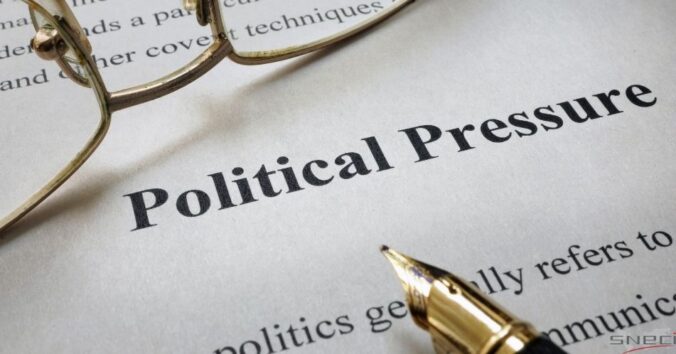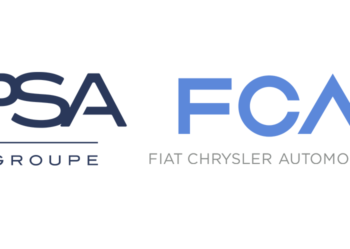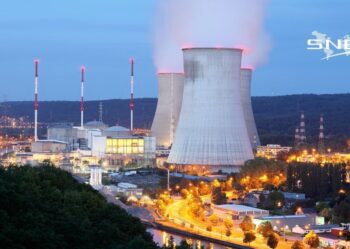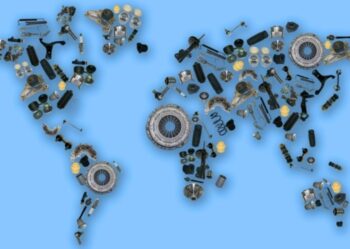Situation in Ukraine: consequences for the automotive industry.

The current conflict between Russia and Ukraine is having a number of political, economic and societal consequences for various industries.
The international sanctions imposed by European countries have already begun to weaken certain sectors, notably the automotive and energy industries.
Semi-conductor shortage accentuated?
Ukraine: one of the major suppliers of neon in the world
As you probably already know, the automotive industry has been facing a shortage of semiconductors for almost 2 years. Let’s remember that the semiconductor is a small part that is essential to ensure the proper functioning of any electronic device. Indeed, this chip has properties that allow it to act as both a conductor and an insulator. In particular, it can conduct electricity in some cases. All these characteristics make it an indispensable part of our computer and connected devices, but also our vehicles.
However, the main consequence of the Russia/Ukraine war is to further accentuate this semiconductor crisis.
How is this happening?
Because of the pressure on one of the noble gases that is essential for the manufacture of these chips: neon. This is a gas that enables the production of semiconductors. Today, 70% of the neon supplied in the world comes from Ukraine. As the second lightest gas in the world after hydrogen, it is therefore a crucial resource today.
Neon is notably necessary for the lithography phase: one of the key stages in the manufacture of semiconductors. So if Ukraine has difficulties in exporting this resource, semiconductor manufacturers could be very quickly affected: their production would be slowed down.
It should also be borne in mind that a drop in neon supply could lead to a considerable increase in the price of neon. So if supply weakens and demand continues to rise, the price will inevitably rise, creating more pressure on the gas.
But it is not only Ukraine that provides the resources needed to manufacture these valuable chips. Russia also has a role to play.
Russia, a major producer of palladium
Russia is one of the world’s largest producers of palladium, a platinum group material. Palladium is essential for the manufacture of catalytic converters and a number of electronic components, including some used in semiconductors. The sanctions imposed on Russia by the West may cause semiconductor producers and suppliers to look for alternative sources of supply.
For example, European airspace has been closed to Russian aircraft and airlines since 27 February 2022, severely restricting exports by air (and other travel).
In addition, exports of “critical technologies” from the EU to Russia are also put on hold. This concerns electronic components, software, aeronautical industry equipment, etc.
So, for all these reasons, the semiconductor crisis is likely to be reinforced in the long term, if the war between Russia and Ukraine does not stop.
The production of electrical cables (for vehicles) in Ukraine is weakened
It should be noted that Ukraine also manufactures electrical cables used for vehicle wiring harnesses. Several European car manufacturers buy their cables from Ukraine. Indeed, 7% of the world’s imports of these cables come from Ukraine.
However, here too, due to the ongoing armed conflict, a large number of factories producing these cables have been shut down. Certain brands such as Porsche, BMW and Volkswagen (etc) are particularly affected.
It should also be remembered that the manufacture of these harnesses is highly technical, which makes it difficult to transfer or initiate in new factories.
The situation is likely to be even more difficult for players in the automotive industry who have already been suffering from the consequences of Covid-19 and the shortage of semi-conductors for 2 years now.
What impact will this have on European car manufacturers?
As you can see, the war between Russia and Ukraine is already having an impact on certain automotive players, including suppliers and manufacturers. We take stock below.
Renault: one of the most affected manufacturers
The French group Renault is one of the first concerned by this situation. Russia currently represents nearly 6% of the group’s total turnover (nearly 3 billion euros). In terms of volume, Russia is the manufacturer’s second largest market after France, with more than 482,000 vehicles sold last year. Renault also has numerous subsidiaries in Russia, with an estimated 200,000 employees. Although they are not directly threatened for the moment, the current situation and international sanctions are creating a lot of uncertainty (production could slow down in the coming weeks).
In addition, Renault is a major shareholder (67%) in Avtovaz, the main manufacturer of Lada vehicles in Russia (where Dacias are also sold with the Renault logo).
The Avtovaz production plants in Russia assemble vehicles which are heavily dependent on imports (from Western countries). However, these countries have currently limited their exports of many parts to Russia, which will undoubtedly impact the smooth running of the factories concerned.
German Volkswagen car manufacturer also affected
This manufacturer depends on Ukrainian suppliers for the supply of certain essential parts for the assembly of its vehicles, including the famous electrical cables for the vehicle harnesses (mentioned earlier in this article).
However, the current situation does not allow Volkswagen to source these parts from Ukraine as it used to. Volkswagen has therefore had to shut down two of its production sites in Germany (in Zwickau and Dresden) for a limited time. The vehicles concerned include the Audi Q4 e-tron and the Cupra Born…
The manufacturer will also temporarily suspend production at its Wolfsburg plant for at least a week for the same reasons.
Moreover, it should be noted that Volkswagen sells nearly 700,000 vehicles per year in Russia. The war is therefore creating a lot of concern at this level.
In addition, the cargo ship Felicity Ace, which was partially destroyed by fire, sank during a towing attempt at the beginning of March with 4,000 Volkswagen group vehicles on board, which were lost for good.
The whole situation shows that supply chains (and vehicle production in general) are already beginning to be undermined.
Less impact for Stellantis
Russia and Ukraine are not part of Stellantis’ major markets, which limits the negative impact of the war for the manufacturer.
However, it has invested in the Russian factory at Kaluga, which exports vans to Europe. Models such as the Peugeot Expert, Citroën Jumpy and Opel Vivaro are assembled there. Stellantis is adapting to the context of the conflict between Russia and Ukraine.
The 14-brand automotive group (including Peugeot, Citroën and Fiat) has stopped importing and exporting vehicles to Russia, while maintaining its commercial vehicle production site in Kaluga, north of Moscow, which continues to produce only for the Russian market.
The production of commercial vehicles that were exported, mainly to Eastern European countries, will be absorbed by two sites in Western Europe: Hordain in France and Luton in England, without mentioning the volumes involved.
Oil and energy sector also affected
It is not only the automotive sector that is affected by the current geopolitical context.
The oil and energy sector is also beginning to suffer.
The European Union has decided to further penalize the Russian economy by stopping exports linked to the oil industry: “The Union will no longer export refining technologies for the oil industry to Russia”.
The aim is to limit as much as possible the refueling of Russian military vehicles.
Thus, the Total Energies group finds itself in a very delicate situation since the Russian market represents 17% of its total extractions (between oil and gas).
However, it should be noted that this European Union measure is double-edged.
About half of the solid fuels used by the EU come from Russia (27% oil and 41% gas). This has resulted in an unprecedented energy boom, with Brent crude oil reaching record highs in early March.
To conclude, the war between Ukraine and Russia is currently impacting the automotive and energy sectors and the situation could quickly escalate.
It is therefore important to remain particularly vigilant and to think about how to diversify your suppliers.
SNECI and the sourcing process :
Aware of the importance of diversifying its suppliers and with 10 subsidiaries worldwide, SNECI supports professionals in their international diversification strategy.
Several objectives:
- Acquire a new lever for international growth
- Reduce costs
- Diversify your activity and especially your suppliers
- Relocate critical suppliers
How do we support you?
With an agile, technical and responsive business development team, we are capable of meeting all your needs.
- Costing solutions to quickly identify and capture gains.
- Local integration simulations: trade-off calculations to optimize your investments while respecting local regulations
- Supplier sourcing
- Tender management (RFI, RFQ)
- Supplier evaluations and audits with a follow-up and support schedule
- Management of international purchases and supplies
- Trading/brokering of components
- Comprehensive and complex assignments such as Design-to-Cost, Make-or-Buy and Monozukuri analysis
70 years of expertise in the complex, automotive industry allows us to operate in over 50 countries to ensure profitable growth for our clients. Our local offices spare us the constraints of language, customs and other administrative difficulties, thus guaranteeing security for our customers.
Do not wait any longer, ask one of our experts to call you back or receive a free brochure.





